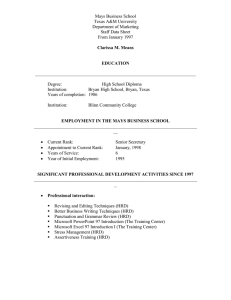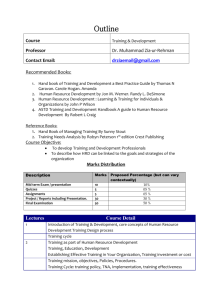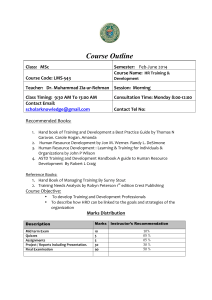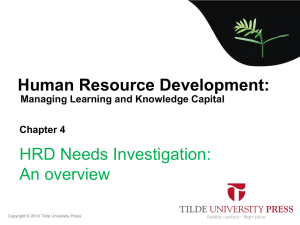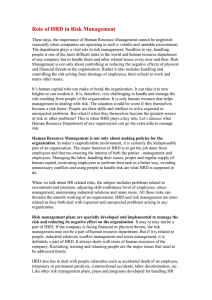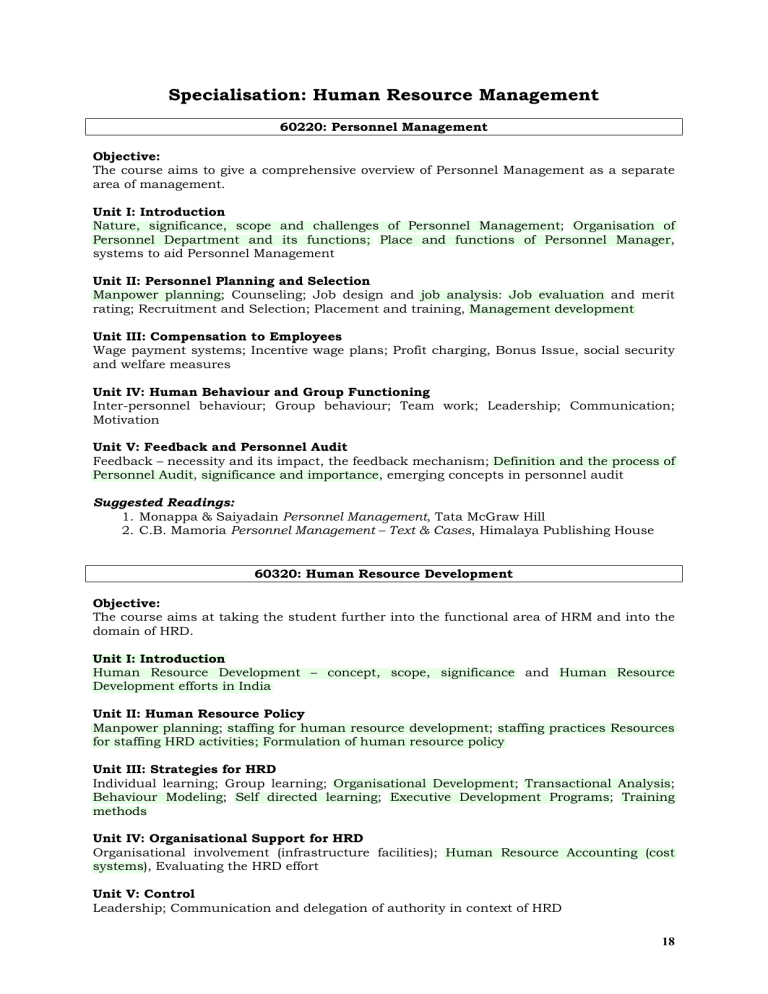
Specialisation: Human Resource Management 60220: Personnel Management Objective: The course aims to give a comprehensive overview of Personnel Management as a separate area of management. Unit I: Introduction Nature, significance, scope and challenges of Personnel Management; Organisation of Personnel Department and its functions; Place and functions of Personnel Manager, systems to aid Personnel Management Unit II: Personnel Planning and Selection Manpower planning; Counseling; Job design and job analysis: Job evaluation and merit rating; Recruitment and Selection; Placement and training, Management development Unit III: Compensation to Employees Wage payment systems; Incentive wage plans; Profit charging, Bonus Issue, social security and welfare measures Unit IV: Human Behaviour and Group Functioning Inter-personnel behaviour; Group behaviour; Team work; Leadership; Communication; Motivation Unit V: Feedback and Personnel Audit Feedback – necessity and its impact, the feedback mechanism; Definition and the process of Personnel Audit, significance and importance, emerging concepts in personnel audit Suggested Readings: 1. Monappa & Saiyadain Personnel Management, Tata McGraw Hill 2. C.B. Mamoria Personnel Management – Text & Cases, Himalaya Publishing House 60320: Human Resource Development Objective: The course aims at taking the student further into the functional area of HRM and into the domain of HRD. Unit I: Introduction Human Resource Development – concept, scope, significance and Human Resource Development efforts in India Unit II: Human Resource Policy Manpower planning; staffing for human resource development; staffing practices Resources for staffing HRD activities; Formulation of human resource policy Unit III: Strategies for HRD Individual learning; Group learning; Organisational Development; Transactional Analysis; Behaviour Modeling; Self directed learning; Executive Development Programs; Training methods Unit IV: Organisational Support for HRD Organisational involvement (infrastructure facilities); Human Resource Accounting (cost systems), Evaluating the HRD effort Unit V: Control Leadership; Communication and delegation of authority in context of HRD 18 Suggested Readings: 1. Dwivedi R S & Dwivedi G K, Human Resource Development, Galgotia Publishing 2. Sen A K, Human Resource: Development, Planning & Deployment, Asian Books 60420: Industrial Relations Objective: The basic objective of the course is to introduce to the students the fundamentals of industrial relations and workers involvement in the same. Unit I: Introduction Meaning, nature, scope, importance, functions of Industrial Relations; Industrial Labour in India – growth, Characteristics of Indian Labour, Employment trends Unit II: Bargaining Agents Worker’s Organisation in India – Necessity, functions, problems of Trade Unions in Indian Industry; Employers’ Organisation – Characteristics of Indian Employers’, Role of Employers’ Organisation in maintaining Industrial Relations Unit III: Industrial Unrest Concept, types, causes of Industrial Disputes, Tools of Industrial Dispute in the hands of workers, Tools Unit IV: Settlement of Industrial Disputes Bipartite & Tripartite negotiations, conciliation, Labour courts, Arbitration and Adjudication – functions Unit V: Promotion of Industrial Peace Collective Bargaining, Workers Participation in Management, Workers Education, Workers’ Welfare, I.L.O. recommendations regarding Labour Management Relations Suggested Readings: 1. Mamoria & Mamoria, Dynamics of Industrial Relations in India, Himalaya Publishing House 2. Venkataraman, C.S, Indian Industrial Relations, National Institute of Personnel Management 3. Monappa: Industrial Relations, Tata McGraw Hill 19
